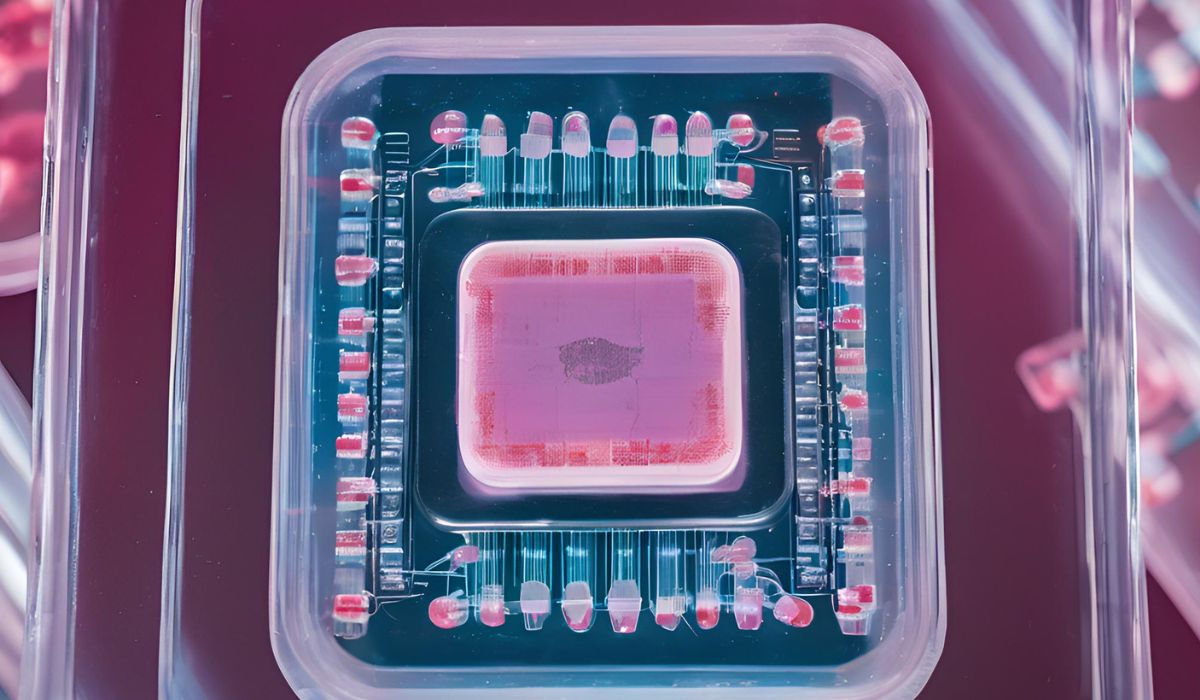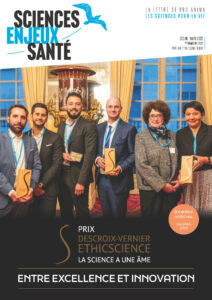
Precision oncology agenda in the EU, Digital twin technology in the US, MPS World Summit : Call for abstract, MPS in toxicity testing and more
News on non-animal methods
OCTOBER 21 -25, 2024NEWS, REPORTS & POSITION STATEMENTS
1. EFPIA : Advancing the precision oncology agenda in the EU
Access to precision oncology is essential to ensure optimal and timely treatment of patients with cancer. However, challenges to access precision oncology highlight disparities across countries in Europe. The various precision oncology multi-stakeholder initiatives led by the European Commission can help address the challenges faced by cancer patients and healthcare providers at a country level.
To explore how we can optimize the link between European initiatives and local challenges, the EFPIA Oncology Platform is organizing a stakeholder roundtable in Brussels, on 13 November. The event is hosted by the Committee of the Regions, with scientific support from EUREGHA (European Regional and Local Health Authorities) and Cancer Patients Europe. It takes place during the Personalised Medicine month, dedicated to raising awareness of, and increasing access to, molecular and biomarker testing in cancer care across Europe.
2. Feedback on the draft EMA network strategy (EMANS) 2028
The EMA is pleased to announce the publication of the draft European medicines agencies network strategy (EMANS) 2028. The draft strategy is open for an eight-week public consultation. You are invited to review the document and provide your input and feedback on the proposal by 30 November 2024 via an online questionnaire.
Emer Cooke, EMA’s Executive Director, says “It will guide the network as it seizes opportunities and meets the challenges of the near future, including preparing for and responding to public health emergencies and threats such as antimicrobial resistance. Now is the time to share your views and help shape the direction of the network for the next few years.”
Alongside the draft strategy, the EMA has also published a Reflection Paper, which outlines the key considerations that underpin the strategy. While the Reflection Paper is not open for consultation, it is available to provide additional context.
3. Lush Prize launches new report on animal research and alternatives in Africa
In the twelve years since the inception of the Lush Prize in 2012, only one of the 156 winning projects has been from Africa and only five nominations in total were received from organisations or scientists across the whole continent. Lush wanted to assess, if possible, the level of animal use in Africa, to see what initiatives there were to use non-animal methods instead, and if there were any educational, public awareness or legislative campaigns to end animal use.
The report notes that “there is little activity highlighting the use of animals in research, or scientific endeavours to replace animal use, across the continent of Africa. There are numerous challenges in trying to improve this situation.” The full report, The use of animals and alternative approaches in research, testing and education in Africa, is available here.
4. NAMs to support regulatory decisions for chemical safety in the UK
The UK Food Standards Agency (FSA) has recently published a roadmap describing their plans to use NAMs to ensure the safety of food in the UK. The UK is at the forefront of research into NAMs with globally renowned experts in academia, regulatory bodies, private companies and contract research organisations (CRO). This means it is well-positioned to play a leading role in progress towards the reduction, refinement and replacement of animal studies in regulations internationally.
In a new report, the FSA gives a summary of the efforts being made by different regions to further integrate NAMs into regulations. It also presents the opinions of experts on the topic about the speed and direction of this integration. The UK FSA roadmap aligns with other initiatives from around the globe, allowing the FSA to use global best practices to refine their approach to risk assessment in the future.
INTERVIEWS, NOMINATIONS & AWARDS
5. Digital twin technology for biomedical applications in the US
The U.S. National Science Foundation, in collaboration with the National Institutes of Health (NIH) and the Food and Drug Administration (FDA), has awarded over $6 million in research funding across seven projects to explore the development of digital twins, dynamic virtual representations of physical objects or processes, for use in healthcare and biomedical research.
The awarded research projects cover various topics, including the development of mathematical models for virtual clinical trials of cardiovascular medical devices, statistical tools for analyzing the ethical use of AI, digital twin-based studies of neurodegenerative diseases and AI-informed decision-making related to glucose metabolism in people with Type 1 diabetes.
TOOLS, PLATFORMS, CALLS
6. Notice of Special Interest (NOSI): NIH Common Fund’s replication to enhance research impact initiative
The NIH Common Fund seeks to enhance the validity of the impactful lines of biomedical research it supports. The purpose of this new Notice of Special Interest (NOSI) is to provide administrative supplements to active NIH-funded awards to conduct preparatory activities that enable high-fidelity replication studies using independent contract research resources.
This initiative is funded through the NIH Common Fund, which supports cross-cutting programs that are expected to have exceptionally high impact. Many Common Fund initiatives invite investigators to develop bold and innovative approaches to address problems that may seem intractable or to seize new opportunities that offer the potential for rapid progress.
7. MPS World Summit : Call for abstract
The Microphysiological System World Summit 2025 will take place in Brussels on June 9 – 13. Abstracts are invited on the topic of new developments and applications of MPS, which are divided into four themes : MPS* Development and Results Processing, MPS for Biomedical Research and Disease Modelling, MPS for Efficacy, ADME, and Toxicity Testing, MPS for Industrial and Regulatory Testing.
*MPS : cell culture systems replicating (patho-) physiology through engineered organ architecture and functionality. This includes especially 3D-(co-)cultures such as organoids, organ-on-chip models, and multi-organ models, as well as the technologies to engineer and analyze these systems.
Top-scored abstracts will be selected for an oral presentation at one of the scientific sessions. Deadline : January 15, 2025.
INDUSTRY, BIOTECH & PARTNERSHIPS
8. Lattice Medical secures 3.6 million euros in funding
Lattice Medical, labeled FrenchTech 2030 and located on the Eurasanté park, has received 3.6 million euros in funding for the M3DINPRINT project, as part of the Programme Capacité Santé 2030 whose stakeholders are : the SGPI (Secrétariat Général Pour l’Investissement), the AIS (Agence Innovation Santé), BPIFrance and the FrenchTech teams.
The M3DINPRINT project aims to develop an innovative production tool that is unique in the world, the first cleanroom 3D printing farm capable of high-volume manufacture of innovative devices such as MATTISSE for breast reconstruction or RODIN for hypodermal reconstruction. The project’s ultimate goal is regulatory validation of its future factory, enabling it to roll out the manufacture of thousands of patient-tailored 3D-printed implants.
Read more (FR)
9. Opportunities for MPS in toxicity testing of new drug modalities
New drug modalities offer life-saving benefits for patients through access to previously undruggable targets. Yet these modalities pose a challenge for the pharmaceutical industry, as side effects are complex, unpredictable, and often uniquely human. With animal studies having limited predictive value due to translatability challenges, the pharmaceutical industry seeks out new approach methodologies.
Researchers from MIMETAS, Roche, and Eberhard Karls University Tübingen publish a new review on the potential of microphysiological systems (MPS) in toxicity testing for new drug modalities. The review highlights how MPS can address the safety challenges posed by innovative therapeutics like antibody-drug conjugates (ADCs) and chimeric antigen receptor (CAR)-T cells. While MPS technology is promising, the review addresses challenges like cell sourcing, standardization, and scalability. It calls for greater collaboration between academic, commercial developers, and the pharmaceutical industry to ensure MPS models meet industry needs and regulatory standards.
10. Collaborative breakthrough in lung-on-chip technology
AlveoliX, in collaboration with Vitrocell Systems, the University of Bern, and the Helmholtz Institute for Pharmaceutical Research Saarland (HIPS) just announced the publication of a landmark study in Bioengineering & Translational Medicine. This study titled “A stretchable human lung-on-chip model of alveolar inflammation for evaluating anti-inflammatory drug response” demonstrates how this Lung-on-Chip model provides an advanced platform to study human lung function, offering a more accurate and predictive approach to investigating respiratory diseases and testing potential treatments.
« This study is a testament to the power of collaboration and innovation in solving some of the most pressing challenges in healthcare. », Dr. Nina Hobi, CEO of AlveoliX.
SCIENTIFIC DISCOVERIES & PROTOCOLS
11. Evaluating the efficacy of booster vaccines using artificial lymphoid organs-on-a-chip
Researchers at the Institut Pasteur’s Virus and Immunity Unit, a Carnot-labeled institute, have developed an innovative technology : lymphoid organs-on-a-chip capable of simulating the response of the human immune system to vaccine boosters.
Comparing on-chip lymphoid organs created from blood samples from different donors, Prof Lisa Chakrabarti and colleagues observed a variety of responses, with some chips responding equally to different types of mRNA vaccine and others revealing a stronger response to monovalent or bivalent vaccine. This breakthrough could provide an agile pre-clinical system for evaluating vaccine candidates in the event of a rapidly evolving pandemic such as SARS-CoV‑2.
UPCOMING WEBINARS, WORKSHOPS, SYMPOSIA
- MPS for Chemical Risk Assessment Webinar — October 28, 2024
- Webinar : Phenotypic Disease Modeling for Metabolic and Cardiovascular Diseases — October 29, 2024


